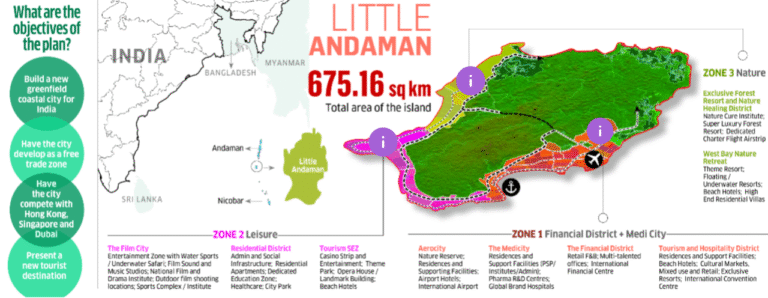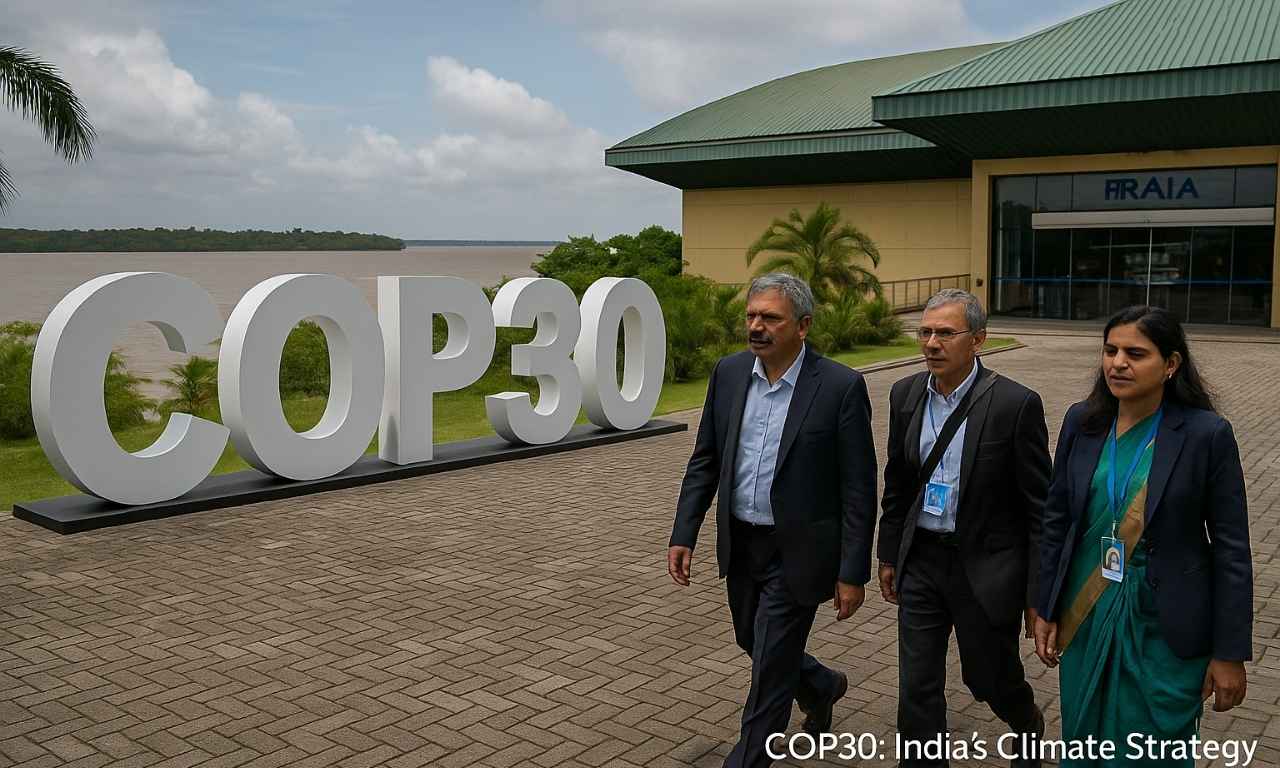The Nicobarese Tribal Council has alleged that the Andaman and Nicobar Islands (A&NI) administration falsely claimed that tribal forest rights were settled under the Forest Rights Act (FRA), 2006, for granting clearance to the ₹72,000-crore Great Nicobar infrastructure project.
Background of the Project
- The Great Nicobar Project includes:
- A transshipment port
- An international airport
- A power plant
- A township
- Requires diversion of nearly 13,075 hectares of forest land.
- Project has raised concerns about impact on vulnerable tribal groups and fragile ecosystems.

Key Issues Raised
- Disputed Forest Rights Settlement: The administration issued a 2022 certificate stating that FRA rights were identified and settled. Tribal Council claims the process under FRA has not even started.
- Gram Sabha consent was shown as obtained, but Nicobarese members were not part of the meeting.
Conflict Between FRA 2006 and PAT56
- FRA, 2006: Requires identification of rights and Gram Sabha consent before forest diversion.
- Protection of Aboriginal Tribes Act (PAT56): Allows the administrator to divert land directly.
- Administration has argued that FRA implementation is not needed since PAT56 already protects forests.
Concerns of the Tribal Community
- Loss of traditional rights and access to forests.
- Disruption of their culture, livelihood, and relationship with the land.
- Lack of free, prior, and informed consent before project approval.
Government’s Position
- The Centre maintains that due procedure was followed.
- Cites a Gram Sabha meeting of August 2022 as evidence of consent.
- Ministry of Tribal Affairs has said the issue is “being examined.”
Broader Implications
- Legal and Governance Issues: Raises doubts about proper implementation of the Forest Rights Act, 2006. Highlights conflict between development priorities and tribal rights.
- Environmental Concerns: Massive diversion of forest land threatens biodiversity in a fragile island ecosystem.
- Tribal Rights Protection: Reflects challenges in safeguarding the rights of Particularly Vulnerable Tribal Groups (PVTGs). Shows gaps in consultation and representation of local communities.
FOREST RIGHTS ACT (FRA), 2006:
- Recognition of Rights – Gives legal rights to forest-dwelling Scheduled Tribes (FDST) and Other Traditional Forest Dwellers (OTFD) over land and forest resources.
- Types of Rights – Includes individual rights (like land for cultivation) and community rights (like grazing, fishing, and minor forest produce).
- Gram Sabha Role – Empowers Gram Sabha (village assembly) as the authority to decide claims and manage forest resources.
- Conservation with Livelihood – Aims to balance forest conservation with the livelihood and cultural rights of forest-dependent communities.
Conclusion:
The Great Nicobar project represents a clash between economic development and tribal rights. While the Centre claims due process, tribal representatives contest the legitimacy of consent under FRA. The case underscores the urgent need for transparent procedures, genuine community participation, and balancing infrastructure goals with tribal and ecological protection.





